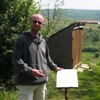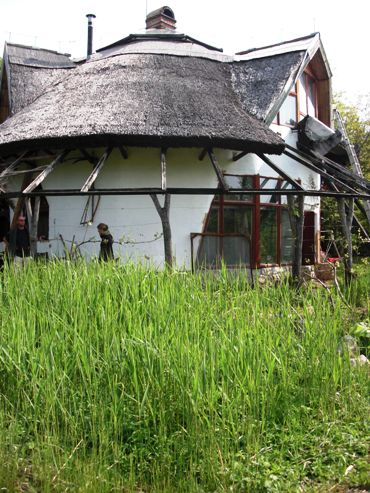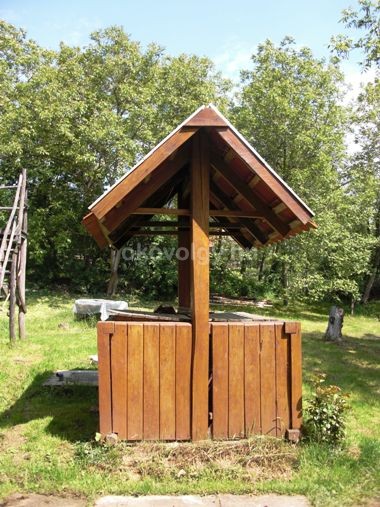 So many houses, so many customs. And thereby, so many eco villages, so many varieties. Although the greatest expectation from eco- villages is their environment saving lifestyle, according to our experience without collective ideological basis and functional social relations, that is to say, without a real community the system is unsustainable, where most likely people will be unhappy.
So many houses, so many customs. And thereby, so many eco villages, so many varieties. Although the greatest expectation from eco- villages is their environment saving lifestyle, according to our experience without collective ideological basis and functional social relations, that is to say, without a real community the system is unsustainable, where most likely people will be unhappy.
One of the main goals is to have a society functioning as a community and everything else is, to sum it up, a variant of a project. How to meet the basic bodily needs, what are the things to renounce and what not are some of the questions to which we sought various alternatives in Krishna Valley, Visnyeszéplak and Gyűrűfű.
Some experience, a few thoughts on dependency upon public utilities. For instance, if I do not cancel sewerage installation, then on the one hand life is quite convenient, but on the other hand the bill lands in my mailbox, which means I have to get money somehow, plus I am dependent on public utilities.
Let us stick to sewerage. Managing greywater and blackwater is an essential question, one of the most difficult issues in every eco village. There is a place (Krishna Valley) where they continue using the regular closet, but the sewage system is combined with a centralized reed-bed zone sewage system. At other places (e.g. Gyűrűfű) people respectfully do not mix the two sorts of wastewater, therefore there remains the latrine outside, which is sometimes even utilized as composture.

A family-sized reed-bed zone sewage system in Gyűrűfű, where exclusively greywater is utilized.
The eco villages we visited do not use gas at all, they use wood for heating and use wood or solar panels for warming up water (in a cauldron or stove), but for cooking (besides the stove) occasionally they use gas cookers. In one of the places (namely Krishna Valley) there is no electricity, though there are solar cells on the roof of some of the buildings that produce electricity. In the other two places there is electric wiring. There is conduit in two of these places where water comes from various fountains. In one of the places the resource is a collective well. There are places where each house has its own well, where they pull water either by hand or rather obtain it by the help of an electric pump.

They use an electric pump to get water from this well in Gyűrűfű.
The great variety of national eco villages is fascinating and all respect to their residents who are pioneers in leading an alternative lifestyle as opposed to the mainstream culture. Even though there are not many (or rather, there is not enough) eco village initiatives in Hungary, there is a great variety among them, which we can all experience.
We may learn a lot from them as well as take over their practices just in part or in whole and I would like to encourage everyone to visit them to see their exemplary life. Moreover, may someone live in a village or town one should adopt whatever he can from their lifestyle.
Szilvia Rév
